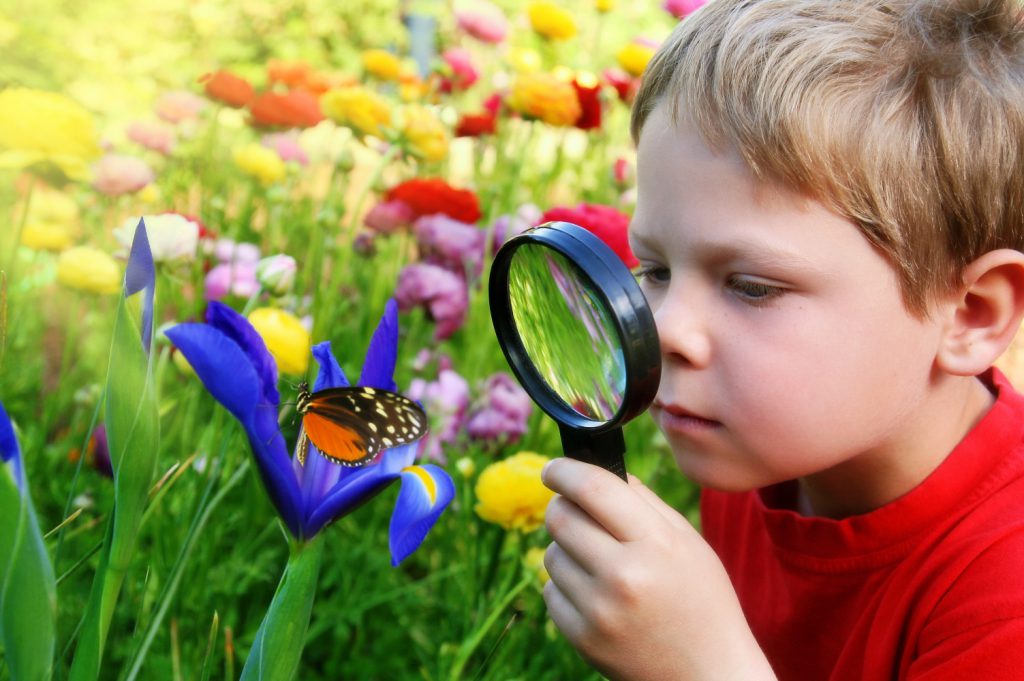How Can I Help My Child Be More Curious About the World?
tl;dr
- Children are naturally curious - don't discourage them!
- Curiosity drives better learning
- Set a good example - ask questions and keep learning
- Challenge ideas
- Provide encouragement when children question ideas
- Encourage flexibility and creativity
- Love and support foster good habits
- Help them find their passion
- Compare their cognitive development and school readiness against their peers
Curiosity in children is a natural thing. Shortly after coming to this world, all human beings start gazing at new objects trying to understand their environment. Long before they start using words, children’s brains are actively working to understand new experiences. However, for some children curiosity dulls as they grow up. This is why parents need to pay attention to their children’s will to explore new things in life.
Why is curiosity in children important to nurture?
In a nutshell, curiosity in children drives the eagerness to explore and the desire to learn. Together with creativity, curiosity is the most important skill to teach your child to practice. These two will help your child use all the other skills and knowledge in the competitive world that awaits them.
As future professionals in the field they choose, children will have to be innovative problem solvers. The more why’s and how’s wander throughout their mind, the more likely they will become one of the people who change the world. What’s more important, they will live a life that is more adventurous and fulfilled in every way. By nurturing your children’s curiosity, you’ll set them up for long-term success.
Curiosity cultivates an active mind – it’s the best antidote to boredom. And as a parent, you know that most of the troubles with your children come in situations when they are bored. Raising curious children, you can be sure they’ll be able to entertain and take care of themselves.
You will also successfully eliminate the risk of them being selfish or spoiled. Curious people know how much they don’t know. Being aware of how the world works will make them less likely to think they’re the center of it.

How to help your child be more curious?
The essential thing to remember here is that you can’t “make” your children be curious. You cannot force eagerness for learning. You can only stimulate your children to develop a sense of creativity and a healthy curiosity for the world they live in. This way you will grow lifelong learners ready for new experiences and greater success in every aspect of their lives.
Teach by example
You have probably already figured out that children learn more from what they see than by what they are being thought. If you want to grow curious kids, you’ll have to show some curiosity about the world, too. Make sure that you constantly ask questions out loud about the things that surround you. It can be anything – the sun, the moon, the plants in your backyard, or the birds coming to the trees by your window.
Encourage your children to ask questions and explore. Since you won’t be able to figure out the answers to all their questions, search for information together. Use the internet, go to the library, and watch documentaries together. Curiosity in children is best nurtured through teaching by example.

Challenge your children
Very often parents choose games and learning activities that are easy for their children in order to boost their confidence. While this approach is good and can improve children’s mood, it doesn’t help much in stretching their skills and nurturing their curiosity.
You need to give your children tasks that challenge them. This way they will have to search for ways to solve the problem, which leads to being curious about how things work and practicing creative thinking. The more new activities you introduce to your children, the more open they will be to new experiences in the future. This will make them intelligent and wise problem solvers.
Never discourage them
This one can sometimes seem hard to practice. Children’s curiosity usually means making a mess in your home while experimenting with the objects that surround them. Naturally, your first instinct is to stop them before they ruin something that will take a lot of time and money to fix. This is where you need to stop for a second and think of a way to redirect them to continue exploring without making the mess.
For example, if your children are engaging in experiments with water, just move them in the bathtub or in the backyard. This way you will protect yourself from going crazy and teach your children to look for acceptable ways to do the things they want.

Encourage flexibility
If you want your children to be curious, teach them to be open and flexible, suspending all the judgments about people and things that surround them. Teach them to explore and not fall prey to stereotypes. There will always be things that your children won’t know, and they should be prepared for it.
You can encourage flexible thinking and doing by always showing them the final goal of every activity. Do not show or tell them how to think or do something. Explain to them that there is always more than one perspective in looking at an issue. Teach them to look at all the available facts before solving a problem. Then, encourage them to solve it in their own way.
Always show support
You might think this would be counterproductive to encouraging independence and curiosity in children, but it’s not. In fact, in order to have the courage to experiment with new ways of thinking and doing things, children have to feel safe first. They need to be sure they have your support in their exploring endeavors.
The more support you show, the more enthusiastic your children will be in their next experiments. Listen carefully to the things your kids are curious about. And if you sense they are uncomfortable and unsure, tell them it’s normal to feel that way when trying out new things. Always be your children’s safe haven. It will help them reach out for the best that’s inside them.

Inspire them to find a hobby
Having a hobby is important for children for many reasons. Hobbies help them stay positive, entertained, and socialized. Even more importantly, hobbies encourage curiosity and help children make new cognitive connections in their minds. See what your children are good at, and encourage them to pursue their interests and passions. Moreover, you can use the hobby to strengthen a skill that your child needs to work on.
If you want to compare your child’s development and school readiness to their peers, try our free online kindergarten readiness test. The immediate feedback will give you recommendations for specific learning activities to help you focus on the areas that matter the most.